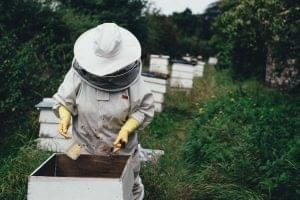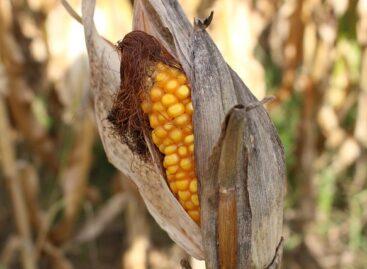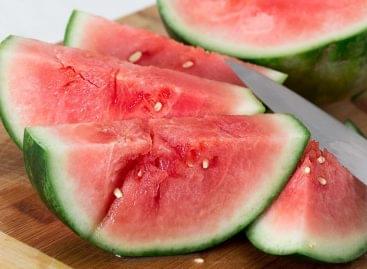The beekeepers in Tiszántúl produced half as much honey because of the drought
Due to the summer drought, beekeepers were able to produce half of the usual amount of honey, mainly east of the Danube, the founding president of the Békés County Beekeepers’ Association Benedek Göndöcs told MTI on Monday.

(Photo: Pixabay)
Ferenc Haász said that rapeseed and acacia honey “were just barely there”, but the oil radishes, lindens and sunflowers, which are the most typical in Békés County, produced almost no honey due to the drought; therefore, it was not possible to produce mixed honey here either. Those who do not migrate the bees can typically produce 35-40 kilograms of honey per colony; who travels, 65-70 kilograms. This year, about half of this was achieved, mainly those who did not migrate, he said.
The situation is further aggravated by the fact that there has been no purchase in the wholesale market for about six weeks
He sees the reason for this, on the one hand, in the large amount of honey that arrived in the Union duty-free from Ukraine, which caused an oversupply. On the other hand, buyers are also more cautious, they don’t dare to buy large quantities of the product, which is increasingly considered a luxury item in the current situation – he opined. The expert emphasized that honey can be kept in a barrel for a long time, but it crystallizes, and due to the ever-increasing gas prices, it may become too expensive to make it liquid again by heating it. “In the case of a truckload of honey, this can be an additional cost of several million forints,” he said. According to him, the approaching Christmas period can boost market and backyard sales somewhat, but they account for only 25 percent of the turnover. The process should have already started with honey certification in the wholesale markets, but there is no sign of this, he said. At the same time, the specialist does not expect a shortage of honey, as he said, “the country has become two-faced this year”, the beekeepers in Transdanubia are finishing a good year. For beekeepers, the increase in energy prices manifests itself in transport and travel costs; and the rise in the prices of raw materials – especially sugar – may increase the cost of autumn feeding of bees and food replacement. This effect will appear next year, as can be seen when the bees die due to inadequate nutrient supplementation, said Ferenc Haász.
There are currently 1,200 beekeepers and around 65-70 thousand bee colonies in Békés county.
MTI
Related news
Farmers are being helped against drought with free water fees, water retention and irrigation modernization
While the government supports farmers by assuming the water service…
Read more >The government provides irrigation water to farmers for free
The government provides irrigation water to farmers for free by…
Read more >Agrometeorology: Drought continues to worsen
The agricultural drought in the Great Plain has continued to…
Read more >Related news
Drought, technological competition and collaboration: the domestic melon season has begun
The 2025 Hungarian melon season starts amidst serious challenges: the…
Read more >Leadership change at Fornetti: Nándor Szabó is the new Managing Director
Nándor Szabó will take on the role of CEO of…
Read more >Change in Zwack management: Csaba Belovai is the new CEO of Zwack Unicum Plc.
According to the decision of the owners of Zwack Unicum…
Read more >






